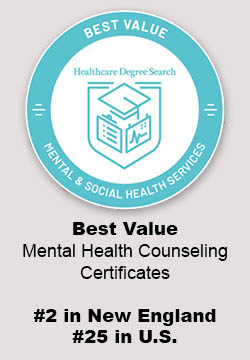Our dedication to Racial Equality and Social Justice (RESJ) spans decades. Learn more about our RESJ Initiative
Alcohol & Drug Counseling Graduate Certificate
-
Credits:
18
-
Degree:
Graduate Certificate
Program Description

A graduate certificate in Alcohol & Drug Counseling is for students seeking professional training in substance abuse/addiction treatment, education and prevention, leading to certification or licensure.
In 2021, Cambridge College's mental health counseling certificates were ranked as #1 in New England for Best Quality, #2 in New England for Best Value and #25 in the U.S. for Best Value by Healthcare Degree Search (HDS), an organization that specializes in promoting healthcare careers, and ranks programs on outcome-based factors, based on data from the U.S. Department of Education. Learn more.
Learning Outcomes
Students become familiar with addictions counseling, its professional ethics, and its role in society. They learn the 12 core functions of an addiction counselor: screening, intake orientation, assessment, treatment planning, referrals, reports and record keeping, and consultation with other professionals. They know and apply current theory and research in their field, and gain sufficient knowledge for competent interdisciplinary counseling practice. They exhibit socially-conscious behaviors, critical thinking, and effective communication skills in their work with individuals, caregivers, families, staff, and other professionals.
Careers and Further Study
Addictions counseling professionals help people through public health agencies, youth services, residential treatment programs, hospitals, outpatient substance abuse programs, and homeless shelters Alcohol and Drug Counseling program completers may submit applications based on:
- Bachelor’s degree – applicants may request transfer into a master’s degree program.
- Without a bachelor’s degree – applicants may request portfolio evaluation of these courses for transfer toward a bachelor’s degree program.
- LADC licensing by the Mass. Dept. of Public Health.
Curriculum
Please note: this certificate was reduced to 18 credits effective 2020-2021. To view previous years' curriculum, see our catalog back issues.
Includes 300 hours of supervised practical experience in an approved substance abuse treatment program with appropriate supervision.
Admissions
-
Admission Test:
No standardized graduate school tests required for admission into non-licensure programs
-
Admissions Office:
1-800-829-4723
- Application Form:
-
Application Fee:
$50 ($100 for international students)
Program Requirements
High School Diploma, GED or Bachelor’s Degree is required.
Applicants must interview with and gain approval from the program chair.
Health Requirements for Massachusetts Students
The Massachusetts Health Department and Cambridge College require the following of students in Massachusetts:
Immunizations – All students in Massachusetts are required to get certain immunizations before you can register for your first term. See form
Health Insurance – In Massachusetts, undergraduate students taking nine or more credits/term and graduate students taking six or more credits/term must enroll in the College’s health insurance plan. Students who have insurance with comparable coverage may request a waiver. See information and enroll or waive.
School Requirements
International Students
International students need to provide supplemental documentation:
- Official demonstration of English language proficiency
- Supplemental documentation for issuance of I-20
- International transcripts, evaluated by an accepted evaluation service
Transfer Credit
Please complete the transfer credit request form if you wish to have prior course work evaluated for transfer. Learn more about transferring credits.
Tuition
-
Credits:
18
-
Application Fee:
$50 ($100 for international students)
-
Health Insurance Fee:
$3,940 - Required for Massachusetts students only. See waiver details on Tuition & Fees page.)
-
Internship/Practicum Fee:
$400
Note: Rates are as of July, 2022, and are subject to change without notice. Rates apply to all students, unless otherwise noted.
Financial Aid
Cambridge College offers financial aid to students in our degree programs who are enrolled at least half time. Undergraduate students must be enrolled in at least 6 credits each term. Graduate and doctoral students must be enrolled in at least 4 credits each term. Learn more
Grants, Scholarships and Loans
Cambridge College welcomes the opportunity to support your efforts to pay for college. Federal, state and local resources in the form of grants, scholarships, loans and work-study, including Cambridge College Scholarships, are available to help defray the cost of tuition. Learn more
Getting Your Company to Help
Many companies have tuition assistance programs, designed to help their employees with their professional development. Learn more


